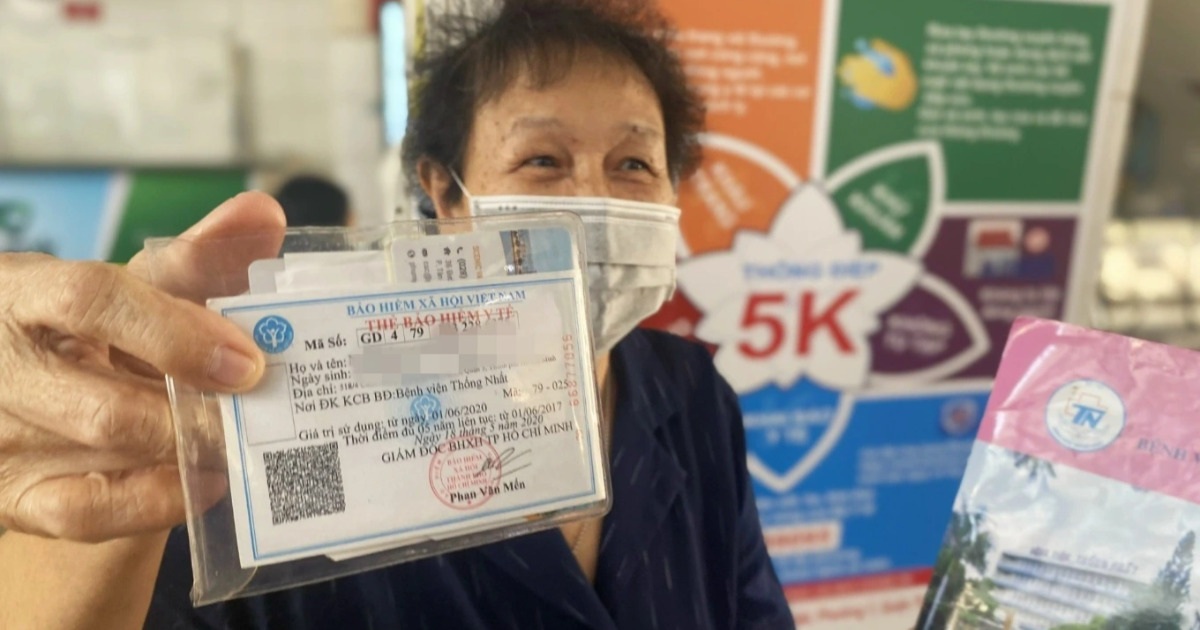التأمين الصحي (BHYT) هو أحد السياسات الهامة التي تضمن حقوق الرعاية الصحية للمواطنين. في عام 2025، سيحدث تغيير كبير في معدلات الاشتراك في التأمين الصحي وفقًا لفترة زمنيتين: قبل 1 يوليو وبدءًا من 1 يوليو. دعنا نستعرض التفاصيل لمعرفة أحدث القواعد واللوائح.
معدلات الاشتراك في التأمين الصحي قبل 1 يوليو 2025
قبل 1 يوليو 2025، ستظل معدلات الاشتراك في التأمين الصحي تطبق وفقًا للقانون الحالي للتأمين الصحي، وتتضمّن الفئات التالية بشكل خاص:
1. فئة العمال النظاميين
تشمل هذه الفئة العمال الذين يعملون في سوق العمل الرسمي، ويتم توقيع عقود عمل معهم ومشاركتهم الإلزامية في الضمان الاجتماعي (BHXH). يتم حساب معدلات الاشتراك في التأمين الصحي بناءً على الراتب الشهري الذي يُستخدم كأساس للإشتراك في الضمان الاجتماعي.
- معدل الاشتراك: 4.5٪ من الراتب الشهري.
- تقسيم المسؤولية عن الاشتراك:
- صاحب العمل يدفع 3٪.
- العامل يدفع 1.5٪.
تم تنفيذ سياسات دعم المواطنين للانخراط في التأمين الصحي على نطاق واسع.
2. فئة المشاركة الطوعية في التأمين الصحي للأسرة
بالنسبة لأسر تشارك في التأمين الصحي بشكل طوعي، يتم حساب معدلات الاشتراك بناءً على عدد الأفراد في الأسرة.
- الأول: يدفع بنسبة 4.5٪ من الحد الأدنى للأجور.
- الثاني، الثالث، الرابع: يدفعون على التوالي بنسبة 70٪، 60٪، 50٪ من معدل دفع الأول.
- من الخامس وما بعده: يدفعون بنسبة 40٪ من معدل دفع الأول.
على سبيل المثال، الأسر التي تعتبر فقيرة جدًا تحصل على دعم بنسبة 70٪ من معدلات الاشتراك في التأمين الصحي. وبالتالي، يكفي أن يدفع أفراد الأسرة الفقيرة 30٪ من المعدل الطبيعي، وهو 379.080 دينار/سنة.
يمكن حساب معدلات الاشتراك في التأمين الصحي للأسرة بشكل مرنه بناءً على عدد الأفراد.
3. فئة الطلاب والطالبات الجامعيين
يدفع الطلاب والطلاب الجامعيون رسوم الاشتراك الشهرية بنسبة 4.5٪ من الحد الأدنى للأجور. من بين ذلك:
- يقدم бюджет الدولة دعمًا بنسبة 30٪.
- يدفع الشخص المشارك 70٪.
تخفيف العبء المالي على الطلاب والطلاب الجامعيين من خلال السياسات الداعمة.
معدلات الاشتراك في التأمين الصحي بعد 1 يوليو 2025
بعد 1 يوليو 2025، سيتم تطبيق معدلات الاشتراك في التأمين الصحي وفقًا لقانون رقم 51/2024/QH15 الذي يعدل ويضيف بعض البنود إلى قانون التأمين الصحي. فيما يلي أهم التغييرات الجديدة:
1. استبدال الحد الأدنى للأجور بمعدل المرجع
أضاف قانون التأمين الصحي لعام 2024 “المعدل المرجعي” كأساس لتحديد معدلات الاشتراك والاستفادة من التأمين الصحي. هذا المعدل المالي الذي يقرره مجلس الوزراء يحل محل الحد الأدنى للأجور الحالي.
2. إضافة فئات جديدة للمشاركة
يقوم القانون الجديد بتوسيع نطاق الفئات المشاركة في التأمين الصحي، مما يؤدي إلى تغييرات في قواعد الاشتراك. بالتحديد:
- العمال المتعاقدين على أساس قصير الأجل: يمكنهم الانخراط في التأمين الصحي بمعدلات اشتراك مناسبة.
- الفئات المستفيدة من السياسات الاجتماعية: تحصل على دعم أكبر من الميزانية الحكومية.
- فئات خاصة أخرى: يتم تعديل معدلات الاشتراك وفقاً للحالة الخاصة بكل فئة.
جدول يوضح معدلات الاشتراك والمسؤوليات الجديدة وفقًا للقانون الجديد.
الخلاصة
يعكس تعديل معدلات الاشتراك في التأمين الصحي في عام 2025 جهد الحكومة لتحسين جودة الخدمات الصحية وتوفير العدالة الاجتماعية. لتحقيق الاستفادة القصوى من الحقوق، يجب على المواطنين متابعة القواعد الجديدة والإشتراك في التأمين الصحي في الوقت المناسب.
لمزيد من المعلومات، يمكنكم الرجوع إلى الوثائق القانونية ذات الصلة أو التواصل مع مكاتب الضمان الاجتماعي المحلية.
المصدر: dantri.com.vn



